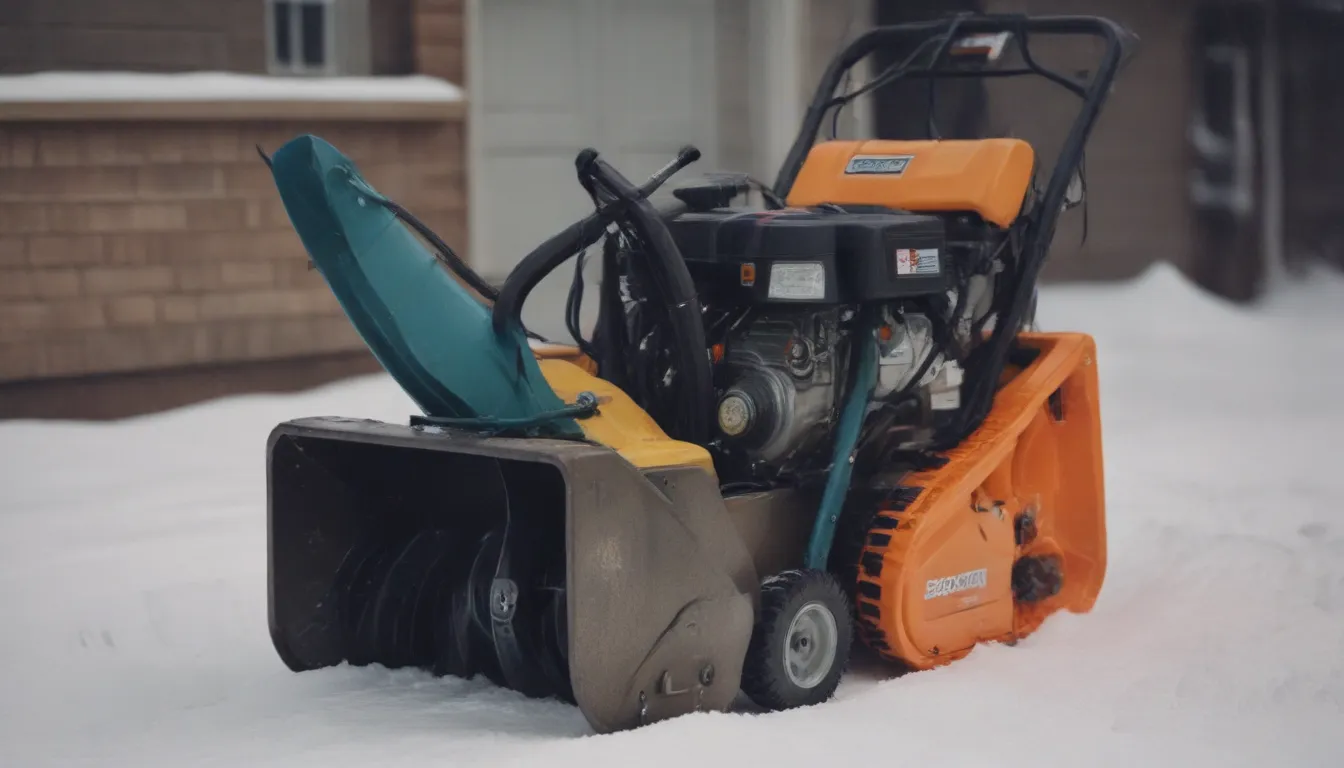The Ultimate Guide to Storing Your Snowblower Properly

Winter has come and gone, and now it’s time to bid farewell to your trusty snowblower until the next season rolls around. But before you tuck it away in storage, there are some important steps you need to take to ensure it stays in top condition. Properly storing your snowblower is essential to prevent any issues like the engine not starting up when you need it most. In this comprehensive guide, we’ll walk you through everything you need to know about storing your snowblower the right way.
Why Proper Snowblower Storage is Important
Neglecting to store your snowblower correctly can lead to a host of problems when winter comes back around. One common issue is leaving old gas sitting in the fuel tank for extended periods. This can cause the gas to break down, leading to the build-up of gunk in your engine that can clog the carburetor and fuel lines. By following the proper storage procedures, you can avoid these issues and ensure that your snowblower is ready to go when the snow starts falling again.
Electric vs. Gas Snowblowers
Before diving into the storage process, it’s worth mentioning the differences between electric and gas snowblowers. Gas snowblowers are more powerful and easier to maneuver, but they require more maintenance, including proper storage procedures. On the other hand, electric snowblowers are cleaner and simpler to maintain. If you want to avoid the hassles of storing gas-powered equipment, an electric snowblower might be the right choice for you.
Tip: Consider the pros and cons of each type of snowblower before making your purchase decision.
Steps to Properly Store Your Snowblower
1. Add Fuel Stabilizer
During the snowblowing season, always add fuel stabilizer to the gas can you use to fill the tank of your snowblower. This simple step helps keep your engine clean by absorbing any moisture in the tank. It’s also a good backup plan in case you forget to drain the fuel from the tank before storing your snowblower. Check your owner’s manual for a compatible stabilizer or search for one online.
2. Drain the Fuel
Draining the fuel from the gas tank is essential to prevent build-up and clogging in your engine. Use a siphon to remove the bulk of the fuel and then run the snowblower until it shuts off to ensure all the gas is emptied from the tank.
3. Perform Basic Maintenance
Before storing your snowblower, check the spark plug, oil, and air filter. Replace any damaged or dirty components and refill the oil according to the user manual.
Tip: Proactive maintenance now can save you time and hassle when it’s time to use your snowblower again.
4. Clean Your Snowblower
On a sunny day, clean the exterior of your snowblower with a soap-water solution and a soft rag. Dry it thoroughly and leave it in the sun to prevent corrosion from salt and debris.
5. Move Your Snowblower to Storage
Ideally, store your snowblower in a garage or storage shed to protect it from the elements. If outdoor storage is unavoidable, place blocks underneath to keep it off the ground and cover it with a durable tarp or snowblower cover.
Quote: “Proper storage is key to ensuring your snowblower stays in working condition season after season.”
Additional Tips for Snowblower Storage
- Inspect belts and friction discs and replace them if necessary.
- Keep a log of maintenance and storage procedures for easy reference next season.
- Consider professional servicing before storing your snowblower for an extended period.
- Store your snowblower in a dry, well-ventilated area to prevent moisture build-up.
By following these simple steps and tips, you can ensure that your snowblower remains in top condition and ready to tackle the next winter season. Proper storage is key to prolonging the life of your equipment and avoiding any unexpected issues when you need it most. Don’t let neglecting your snowblower come back to haunt you next winter—take the time now to store it properly and enjoy a hassle-free snow removal experience next season.




